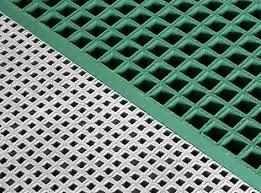
-
 Afrikaans
Afrikaans -
 Albanian
Albanian -
 Amharic
Amharic -
 Arabic
Arabic -
 Armenian
Armenian -
 Azerbaijani
Azerbaijani -
 Basque
Basque -
 Belarusian
Belarusian -
 Bengali
Bengali -
 Bosnian
Bosnian -
 Bulgarian
Bulgarian -
 Catalan
Catalan -
 Cebuano
Cebuano -
 China
China -
 China (Taiwan)
China (Taiwan) -
 Corsican
Corsican -
 Croatian
Croatian -
 Czech
Czech -
 Danish
Danish -
 Dutch
Dutch -
 English
English -
 Esperanto
Esperanto -
 Estonian
Estonian -
 Finnish
Finnish -
 French
French -
 Frisian
Frisian -
 Galician
Galician -
 Georgian
Georgian -
 German
German -
 Greek
Greek -
 Gujarati
Gujarati -
 Haitian Creole
Haitian Creole -
 hausa
hausa -
 hawaiian
hawaiian -
 Hebrew
Hebrew -
 Hindi
Hindi -
 Miao
Miao -
 Hungarian
Hungarian -
 Icelandic
Icelandic -
 igbo
igbo -
 Indonesian
Indonesian -
 irish
irish -
 Italian
Italian -
 Japanese
Japanese -
 Javanese
Javanese -
 Kannada
Kannada -
 kazakh
kazakh -
 Khmer
Khmer -
 Rwandese
Rwandese -
 Korean
Korean -
 Kurdish
Kurdish -
 Kyrgyz
Kyrgyz -
 Lao
Lao -
 Latin
Latin -
 Latvian
Latvian -
 Lithuanian
Lithuanian -
 Luxembourgish
Luxembourgish -
 Macedonian
Macedonian -
 Malgashi
Malgashi -
 Malay
Malay -
 Malayalam
Malayalam -
 Maltese
Maltese -
 Maori
Maori -
 Marathi
Marathi -
 Mongolian
Mongolian -
 Myanmar
Myanmar -
 Nepali
Nepali -
 Norwegian
Norwegian -
 Norwegian
Norwegian -
 Occitan
Occitan -
 Pashto
Pashto -
 Persian
Persian -
 Polish
Polish -
 Portuguese
Portuguese -
 Punjabi
Punjabi -
 Romanian
Romanian -
 Russian
Russian -
 Samoan
Samoan -
 Scottish Gaelic
Scottish Gaelic -
 Serbian
Serbian -
 Sesotho
Sesotho -
 Shona
Shona -
 Sindhi
Sindhi -
 Sinhala
Sinhala -
 Slovak
Slovak -
 Slovenian
Slovenian -
 Somali
Somali -
 Spanish
Spanish -
 Sundanese
Sundanese -
 Swahili
Swahili -
 Swedish
Swedish -
 Tagalog
Tagalog -
 Tajik
Tajik -
 Tamil
Tamil -
 Tatar
Tatar -
 Telugu
Telugu -
 Thai
Thai -
 Turkish
Turkish -
 Turkmen
Turkmen -
 Ukrainian
Ukrainian -
 Urdu
Urdu -
 Uighur
Uighur -
 Uzbek
Uzbek -
 Vietnamese
Vietnamese -
 Welsh
Welsh -
 Bantu
Bantu -
 Yiddish
Yiddish -
 Yoruba
Yoruba -
 Zulu
Zulu
Food Grade Fiberglass Equipment for Safe and Durable Food Handling Solutions
The Importance of Fiberglass Food Grade Equipment in the Food Industry
In the rapidly evolving food industry, the safety and quality of food production are paramount. As businesses strive to meet stringent health standards, the materials used in food processing and handling are undergoing significant scrutiny. Among these materials, fiberglass has emerged as a vital component in food grade equipment, offering a range of benefits that can enhance both safety and efficiency in food operations.
Fiberglass, a composite material made from fine fibers of glass, is increasingly being employed in various food-grade applications due to its excellent durability, resistance to corrosion, and non-reactive properties. This makes fiberglass an ideal choice for equipment that will come into direct contact with food products. Unlike metals, which can corrode or react with food substances, fiberglass remains inert, ensuring that there is no contamination or alteration of food quality. This characteristic is crucial in maintaining the integrity of food products and adhering to stringent FDA regulations regarding food safety.
One of the most notable advantages of fiberglass food grade equipment is its lightweight nature. Unlike traditional metal components, fiberglass is significantly lighter, making it easier to handle and install. This can lead to reductions in shipping costs and labor expenses during maintenance and cleaning procedures. The lightweight quality of fiberglass also means that food processing facilities can be designed with flexibility in mind, allowing for easier modifications and upgrades in production lines without the need for heavy-duty structural changes.
Additionally, fiberglass is remarkably robust and can withstand harsh environments, including extreme temperatures and chemical exposure. In food processing, where cleaning agents and high-temperature conditions are common, fiberglass equipment can maintain its structural integrity without degrading over time. This durability translates into lower long-term maintenance costs, as there is less need for replacement or extensive repairs.
fiberglass food grade equipment

Another vital aspect of fiberglass food grade equipment is its ease of cleaning and sanitation. The smooth surfaces of fiberglass are resistant to bacterial growth and do not harbor contaminants, making them ideal for applications in the food industry where hygiene is critical. Cleaning processes are streamlined, reducing labor costs, and ensuring compliance with health department standards.
Moreover, the versatility of fiberglass allows for the creation of customized equipment tailored to specific operational requirements. Whether for storage tanks, conveyor systems, or processing tables, fiberglass can be molded into various shapes and sizes to suit the unique needs of food manufacturing facilities. This customization not only enhances efficiency but also optimizes space, allowing manufacturers to maximize their operational capacity.
In recent years, the increasing consumer demand for sustainability has led many food businesses to seek eco-friendly materials. Fiberglass is a sustainable option as it can be produced using recycled glass, reducing environmental impact while still meeting food safety standards. By choosing fiberglass, companies can demonstrate their commitment to environmental stewardship, which is becoming an essential aspect of modern food production.
In conclusion, fiberglass food grade equipment plays a crucial role in the food industry, providing a combination of safety, durability, and versatility. Its non-reactive properties, ease of cleaning, and customization options make it an attractive choice for food manufacturers aiming to enhance their operational efficiency while maintaining high safety standards. As the industry continues to evolve and prioritize food safety and sustainability, fiberglass is positioned to remain an invaluable asset in the production of safe, high-quality food products.
Latest news
-
Oblate Tanks: Space-Saving, Durable Liquid Storage SolutionsNewsAug.27,2025
-
High-Performance Piping System Solutions for Industry & Commercial UseNewsAug.26,2025
-
Precision Fittings: Durable & Reliable Industrial & Plumbing SolutionsNewsAug.25,2025
-
Practical Steps: Unlock Success with Our Proven GuidesNewsAug.24,2025
-
Transport Tanks: Safe, Durable & Efficient Liquid HaulingNewsAug.23,2025
-
High-Quality Piping Systems for Efficient Flow & DurabilityNewsAug.22,2025









